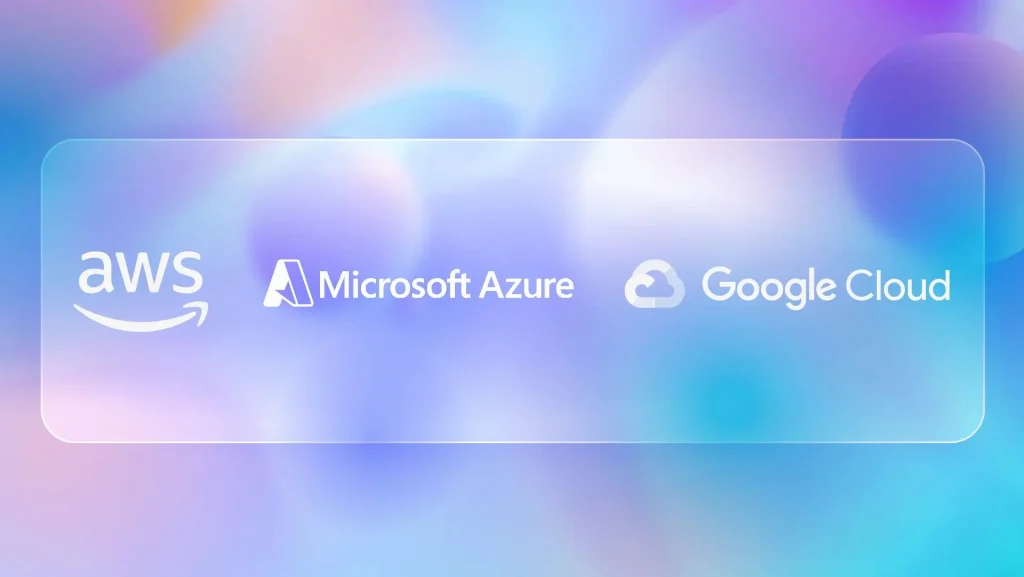The Future of the Cloud: Certifications and Opportunities in AWS, Azure and Google Cloud
How to get certified in Cloud and master DevOps
AWS, Azure and Google Cloud. If you want to know how to get certified in cloud and master DevOps the best thing you can do is to watch this informative seminar led by Rodrigo Moro.
Cloud computing continues to transform the technology and business landscape, demanding more and more highly skilled professionals. In a recent presentation on cloud and DevOps, the importance of certification in cloud technologies was highlighted as a key pathway to professional development and competitiveness in the labour market.
What to study for a job in cloud computing?
To enter the cloud computing industry, it is essential to have a background that covers the fundamentals of cloud computing: systems administration, networking, security, governance and automation. The best way to prepare is through official certifications such as:
– AWS Solutions Architect Associate
– Microsoft Azure Administrator
– Google Cloud Engineer
In addition, training programmes such as the Master in Cloud Architecture & DevOps Management IMMUNE Technology Institute provides a comprehensive education in cloud architecture, DevOps, automation and project management, essential elements for any professional wishing to excel in this field.
How much does a cloud computing specialist earn in Spain?
The salary of a cloud computing professional in Spain varies according to experience and certifications obtained. According to the latest market reports:
- A junior Cloud Engineer can earn between €30,000 and €45,000 per year.
- A Cloud Architect certificate with experience can reach €40,000 to €60,000 per year.
- Profiles specialising in DevOps and Cloud Security can exceed €50,000 per year in large companies.
Given the high growth of the sector, investment in training and certifications translates into job opportunities with competitive salaries.
What are the 4 types of cloud computing?
Cloud computing is divided into four main models, each tailored to different business needs:
- Public CloudServices offered by third parties such as AWS, Azure or Google Cloud, accessible by any user or company.
- Private CloudInfrastructure used exclusively by one organisation, providing greater control and security.
- Hybrid CloudCombination of public and private clouds to balance security, scalability and cost.
Why study cloud computing?
The rise of digital transformation has made cloud computing an essential skill in the technology sector. The main reasons to specialise in this area include:
- High labour demand: Companies from all sectors are looking for cloud experts to optimise their operations.
- Competitive salaries: As mentioned, cloud computing professionals are among the highest paid in the IT sector.
- Flexibility and scalabilityCloud computing expertise allows you to work across industries and embrace emerging technologies such as artificial intelligence and big data.
- Professional growth: Obtain certifications and advanced trainings, such as the Master in Cloud Architecture & DevOps ManagementThe programme is designed to provide access to strategic and leadership roles in technology.
Cloud Certifications: A Passport to Professional Success
The presentation emphasised that having cloud certifications is a key differentiator for professionals in the sector. These certification programmes not only validate technical knowledge, but also assure companies that candidates have gone through a rigorous assessment process.
Certification levels range from fundamentals (for those looking to get started in the cloud) to advanced certifications aimed at architects and specialists in security, networking and DevOps.
SEO and Cloud Computing: Why is Specialised Training Key?
El interés en certificaciones cloud ha crecido exponencialmente, y los datos de búsqueda reflejan que cada vez más profesionales buscan mejorar sus habilidades para acceder a roles mejor remunerados. La búsqueda de términos como «certificaciones AWS», «cursos de Azure» o «cómo ser un arquitecto cloud» ha experimentado un aumento significativo en los últimos años, lo que demuestra una clara tendencia del mercado.
Having a cloud computing certification not only improves employability, but also positions candidates better on platforms such as LinkedIn and other job search engines. To stand out in this competitive environment, it is advisable to opt for training programmes that combine theory and practice, such as the Master in Cloud Architecture & DevOps Managementdesigned to cover all key areas of cloud computing and DevOps automation.
Trends and Opportunities in the Cloud Market
The cloud market continues to evolve, with increasing adoption of hybrid and multi-cloud architectures. Companies are looking to diversify their infrastructures to avoid dependence on a single provider, increasing the demand for professionals with expertise in multiple platforms.
Another key factor is the integration of artificial intelligence in cloud services. Azure has managed to position itself strongly thanks to its alliance with OpenAI, while Google Cloud is committed to artificial intelligence models such as Gemini. AWS, for its part, continues to innovate with machine learning and big data services.
In addition, cost optimisation strategies are pushing companies to diversify their workloads across different vendors, which increases the value of professionals who hold certifications in more than one platform.
Conclusion: A Clear Path for IT Professionals
Cloud certifications have become a highly profitable investment for those looking to improve their employability and access better job opportunities. In a world where digital transformation is a constant, having cloud computing credentials not only opens doors, but becomes a prerequisite for those who want to stand out in the technology industry. The message of the presentation is clear: the cloud is not the future, it is the present, and being certified in its technologies is the best way to ensure professional success in an increasingly competitive environment. Programmes such as the Master in Cloud Architecture & DevOps Management offer a structured and effective pathway to mastering these skills and accessing leadership positions in the technology sector.
